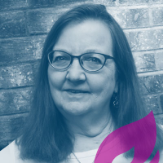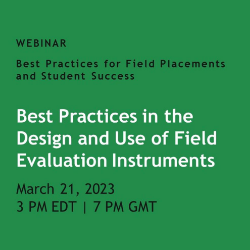Situational analysis is an extension of grounded theory for analyzing qualitative data including interview, ethnographic, historical, visual, and/or other discursive materials. It is especially useful for multi-site research, feminist and critical inquiry. Emphasis is on grasping often messy complexities in the data and understanding relations among the elements constitutive of the situation.
This workshop will focus on the situational map. It can be used for initial project design and later revised in a flexible and iteratively responsive manner across the duration of the project. That is, the situational map is reconstructed over time to specify emergent elements in the research situation about which data have been and/or still need to be gathered. The maps intentionally work against the usual simplifications so characteristic of research by promoting analyses of complexities and differences as well as silenced and marginalized voices and positions. In so doing SA offers a unique capacity for analyzing power dynamics so essential to feminist, social justice, and decolonizing work.
Rachel Washburn, PhD, is Associate Professor of Sociology and Director of the Health and Society program at Loyola Marymount University in Los Angeles. She learned situational analysis from Adele Clarke as a graduate student at UC San Francisco and collaborated with Adele and Carrie Friese on three situauational analysis books, Situational Analysis: Grounded Theory after the Interpretive Turn (2nd Edition) (2018) and Situational Analysis in Practice (2015; 2022). In addition to her work on situational analysis with Adele and Carrie, she conducts research on the politics of knowledge production in the environmental health sciences with a particular focus on human biomonitoring.
Adele E.
Clarke, PhD, is Professor Emerita of Sociology and History of Health Sciences, UC San Francisco.
Her books include Disciplining Reproduction: Modernity, American Life Sciences, and “Problems of Sex” (1998, Fleck Award, Society for Social Studies of Science and Basker Award, Society for Medical Anthropology), Situational Analysis: Grounded Theory after the Postmodern Turn (2005,
Cooley Award, Society for the Study of Symbolic Interaction), co-edited The Right Tools for the Job in Twentieth Century Life Sciences (1992), Women’s Health: Differences and Complexities (1997), Revisioning Women, Health, and Healing (1999), Biomedicalization: Technoscience, Health, and
Illness in the U.S.
(2010), Situational Analysis in Practice (2015 & 2022), and co-authored Situational Analysis: Grounded Theory After the Interpretive Turn (2005).
She received the Bernal Prize (Society for Social Studies of Science, 2012), the Reeder Award (Medical Sociology Section, ASA, 2015), and sessions honoring her at American Anthropological Association (2012) and Pacific Sociological Association (2019) meetings.
Rachel Washburn, PhD, is Associate Professor of Sociology and Director of the Health and Society program at Loyola Marymount University in Los Angeles. She learned situational analysis from Adele Clarke as a graduate student at UC San Francisco and collaborated with Adele and Carrie Friese on three situauational analysis books, Situational Analysis: Grounded Theory after the Interpretive Turn (2nd Edition) (2018) and Situational Analysis in Practice (2015; 2022). In addition to her work on situational analysis with Adele and Carrie, she conducts research on the politics of knowledge production in the environmental health sciences with a particular focus on human biomonitoring.

Adele E.
Clarke, PhD, is Professor Emerita of Sociology and History of Health Sciences, UC San Francisco.
Her books include Disciplining Reproduction: Modernity, American Life Sciences, and “Problems of Sex” (1998, Fleck Award, Society for Social Studies of Science and Basker Award, Society for Medical Anthropology), Situational Analysis: Grounded Theory after the Postmodern Turn (2005,
Cooley Award, Society for the Study of Symbolic Interaction), co-edited The Right Tools for the Job in Twentieth Century Life Sciences (1992), Women’s Health: Differences and Complexities (1997), Revisioning Women, Health, and Healing (1999), Biomedicalization: Technoscience, Health, and
Illness in the U.S.
(2010), Situational Analysis in Practice (2015 & 2022), and co-authored Situational Analysis: Grounded Theory After the Interpretive Turn (2005).
She received the Bernal Prize (Society for Social Studies of Science, 2012), the Reeder Award (Medical Sociology Section, ASA, 2015), and sessions honoring her at American Anthropological Association (2012) and Pacific Sociological Association (2019) meetings.
Thalia M. Mulvihill, Ph.D., works as a Professor of Higher Education and Social Foundations in the Department of Educational Leadership at Ball State University. Dr. Mulvihill is a historian and sociologist of higher education. She teaches several qualitative research methods and academic writing courses for doctoral students and has authored eight books as well as over 90 refereed publications, co-edits The Teacher Educator journal, and is the recipient of numerous teaching, research, and mentoring awards.
Thalia M. Mulvihill, Ph.D., works as a Professor of Higher Education and Social Foundations in the Department of Educational Leadership at Ball State University. Dr. Mulvihill is a historian and sociologist of higher education. She teaches several qualitative research methods and academic writing courses for doctoral students and has authored eight books as well as over 90 refereed publications, co-edits The Teacher Educator journal, and is the recipient of numerous teaching, research, and mentoring awards.
Thalia M. Mulvihill, Ph.D., works as a Professor of Higher Education and Social Foundations in the Department of Educational Leadership at Ball State University. Dr. Mulvihill is a historian and sociologist of higher education. She teaches several qualitative research methods and academic writing courses for doctoral students and has authored eight books as well as over 90 refereed publications, co-edits The Teacher Educator journal, and is the recipient of numerous teaching, research, and mentoring awards.




